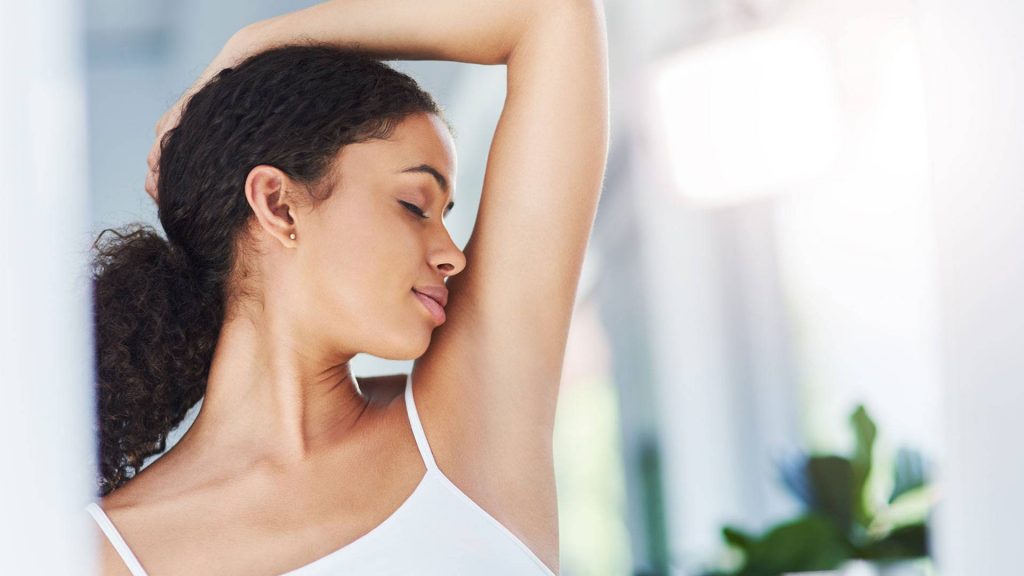By Goodnews Buekor
Last week, I boarded a public transport somewhere, and I was almost choked. Sitting close to a lady left me gasping for fresh air all through the time I was in the vehicle. I was fortunate that the journey was faster than I anticipated. Many passengers, like me, have had to deal with similar experiences. Body odour is a relatively common challenge that can affect a person’s quality of life, which can be controlled and avoided by considering a few essential elements.
What is body odour?
Body odour is a general term for natural smells emanating from a person’s body. The human body can produce a range of substances that carry a scent, known as odorants. These substances may not lead to unpleasant odours when discharged in minute quantities. However, an excessive accumulation of these substances can produce noticeable smells from different body parts.
This article will focus on odours emanating from a person’s skin.
The relationship between sweat and skin body odour
Most of us believe that people who sweat subsequently have foul odours. But, this is not true.
“You can sweat a lot and not smell,” says dermatologist Kelley Pagliai. “We have two different sweat glands: Eccrine glands secrete odourless perspiration, while the apocrine glands produce body odour. The smell is produced when bacteria break down the apocrine sweat glands. People who sweat a lot don’t have odour issues because they sweat so much that the bacteria are swept away,” she explained.
Hacks for reducing skin body odour
The good news is there are remedies for skin body odours.
Dr. Jamuna Pai, a leading skin expert from India, shared some valuable tips.
Practice personal hygiene
Bath at least twice daily; this will help you wash off the sweat and get rid of some bacteria on your skin. Sweat by itself is odourless. But when it mixes up with the bacteria on your skin, they tend to multiply quickly and produce odours.
“There’s no excuse and no alternative for hygiene,” says Dr Pai. ” I recommend people to bathe twice in a day to keep the body clean and odour-free,” she stated.
Apply antibacterial soap
Using soaps that are antibacterial when you shower can go a long way to eliminate the bacteria on the skin.
” Look out for ingredients like tea tree oil, eucalyptus, oregano in your soap. These natural substances have bacterial fighting substances.”
Dry up completely
Moisture is a breeding ground for bacteria. Therefore, you must adequately dry yourself up after showering, not forgetting to pay close attention to areas where you sweat more. When your skin is dry, it becomes difficult for bacteria to thrive.
Apply antiperspirant and deodorants.
Antiperspirant contains aluminium chloride that prevents excessive sweating. It is more effective when used at night. Also, deodorants make you smell nice and shade the odour.
“Use anti-antiperspirant lotions if you sweat excessively. These lotions contain aluminium chloride and should be used in the underarms, palms, and soles at night. They work on reducing the amount of sweat. Deodorants do not prevent or control the amount you sweat, but they help to mask the bad odour,” says Dr Pai.
Pro tip: Use a little talcum powder before applying your deodorant. It helps the deodorant stay longer and keeps the skin dry.
Keep your clothes clean:
Wash your clothes regularly and change them often if you sweat heavily. Fresh clothes help reduce body odour. Wearing cotton clothes can also be helpful as they absorb more sweat.
Reduce specific intake of some foods and drinks
A person’s body odour is significantly affected by one’s diet. Stay away from foods that tend to make you sweat more, like hot peppers or other spicy food. The aroma of foods like onions and garlic can be carried in your sweat. Drinks containing caffeine and alcohol may also make you sweat excessively.
“When it comes to diet, avoid garlic and onion because they are known to trigger foul body odour. A diet rich in fruits and vegetables, adequate protein intake, whole grains and supplements like vitamin B complex and zinc is recommended and of course a minimum of 2-3 litres of water daily,” says Dr Pai.
“If you don’t smell good, then you don’t look good.” Your smell always leaves a lasting memory on people. Body odour is the last thing you want to cause your embarrassment. Try out these tips to not only look good but smell good.





Comments are closed.